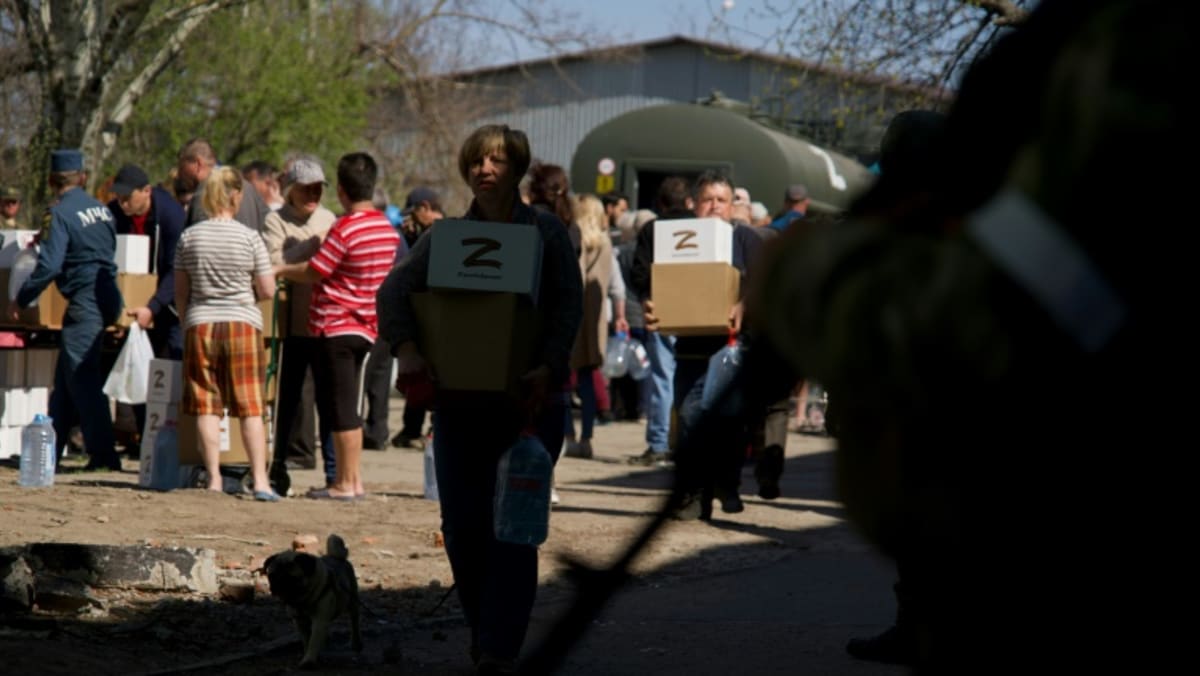In devastated Mariupol, a daily struggle to survive
“WE DON’T LIVE, WE SURVIVE”
About 200 people massed behind a military truck as volunteers handed out food packages – pasta, oil, some preserves – marked with the letter “Z” that symbolises support for Russia’s military campaign in Ukraine. Not far away, two tanker trucks distributed drinkable water.
An old man with narrowed eyes pushed a rickety pram filled to the brim with cans and parcels.
Residents gathered in front of a building at improvised gas stoves heating pots and teapots, the acrid smell rising into the air. Beside them, clothes were steeping in two big blue barrels turned into makeshift washing machines.
“We don’t live, we survive,” said Irina, a 30-year-old video game designer lost inside a grey sweatshirt, the little face of a Yorkshire Terrier sticking out from her backpack.
Many residents of the city – home to about 450,000 people before the conflict – fled as Russian forces advanced.
It is unclear how many remain but those left behind now see little hope of being able to leave.
“I would like to go, but where?” asked Kristina Burdiuk, a 25-year-old pharmacist heading home with her two young girls, each hugging a large loaf of bread to her chest.
“There is nothing left” elsewhere in Ukraine, she said, and “there are already so many” Ukrainians in Poland. Russia, she said simply, is not an option.
Burdiuk said she saw cars carrying families riddled with bullets when they tried to escape the city at the start of the siege. She does not know who shot them.
So she prefers to stay in Mariupol, with her husband, mother and grandmother. She plans to take up offers of work from the new authorities, clearing up rubble, removing bodies or helping with demining — the salary now paid in Russian rubles.
“I am ready to do anything,” she said.
For all the latest world News Click Here

